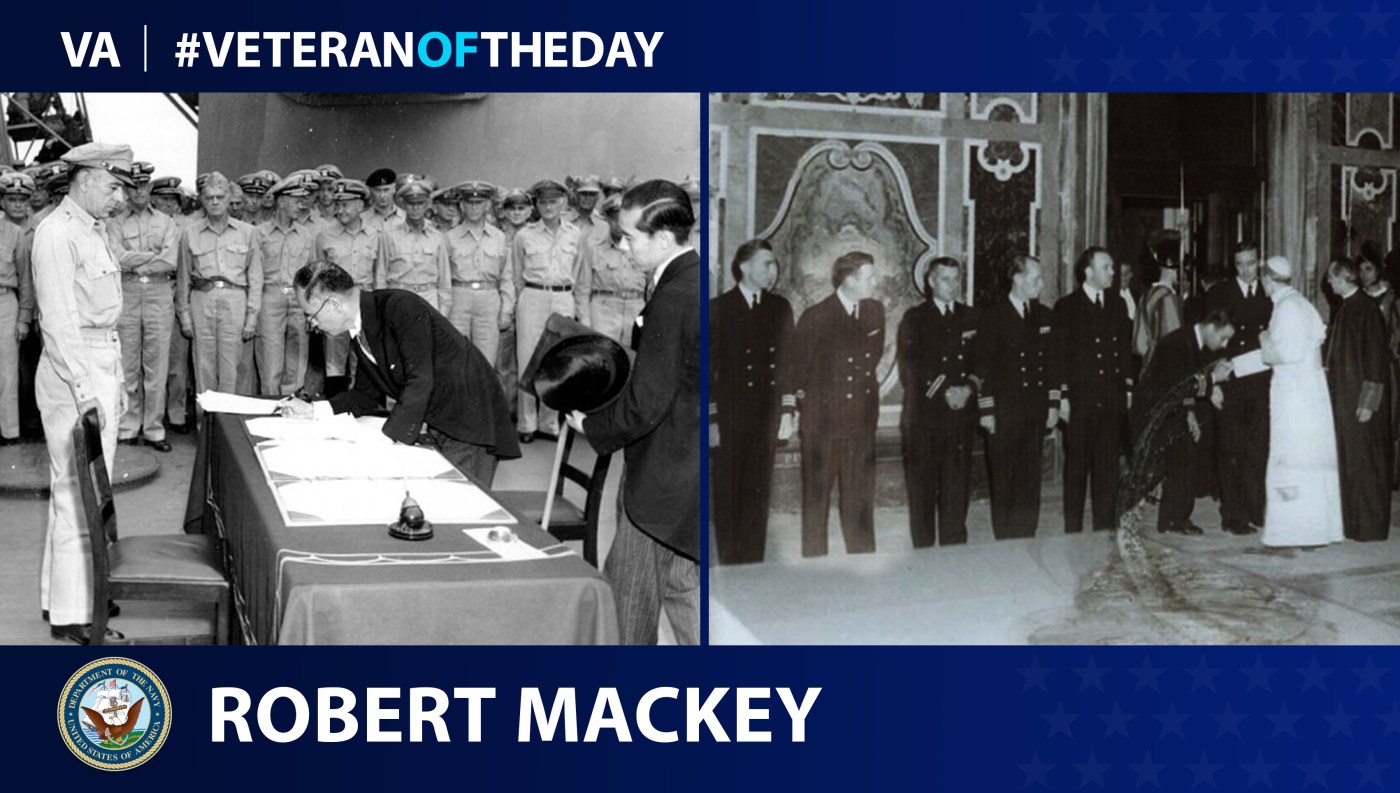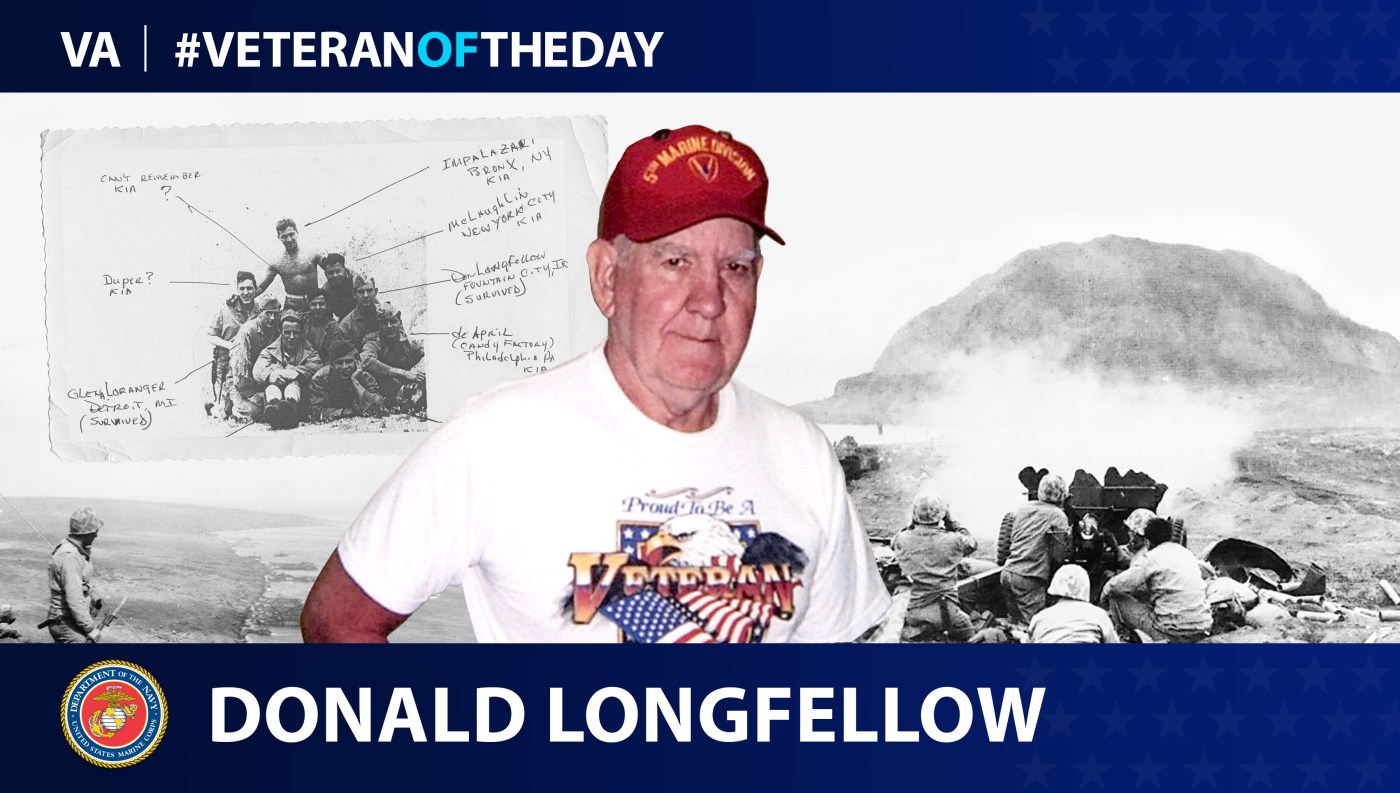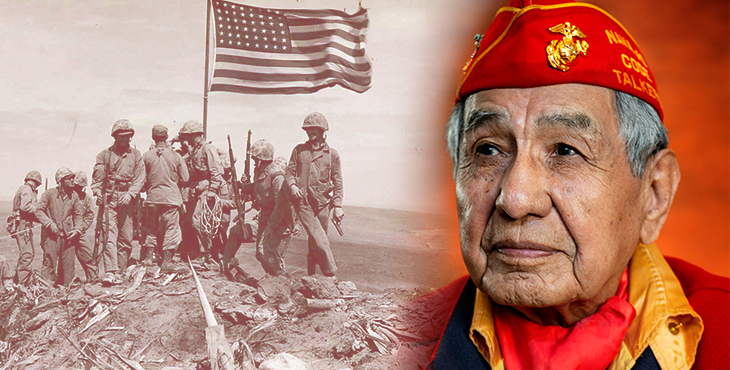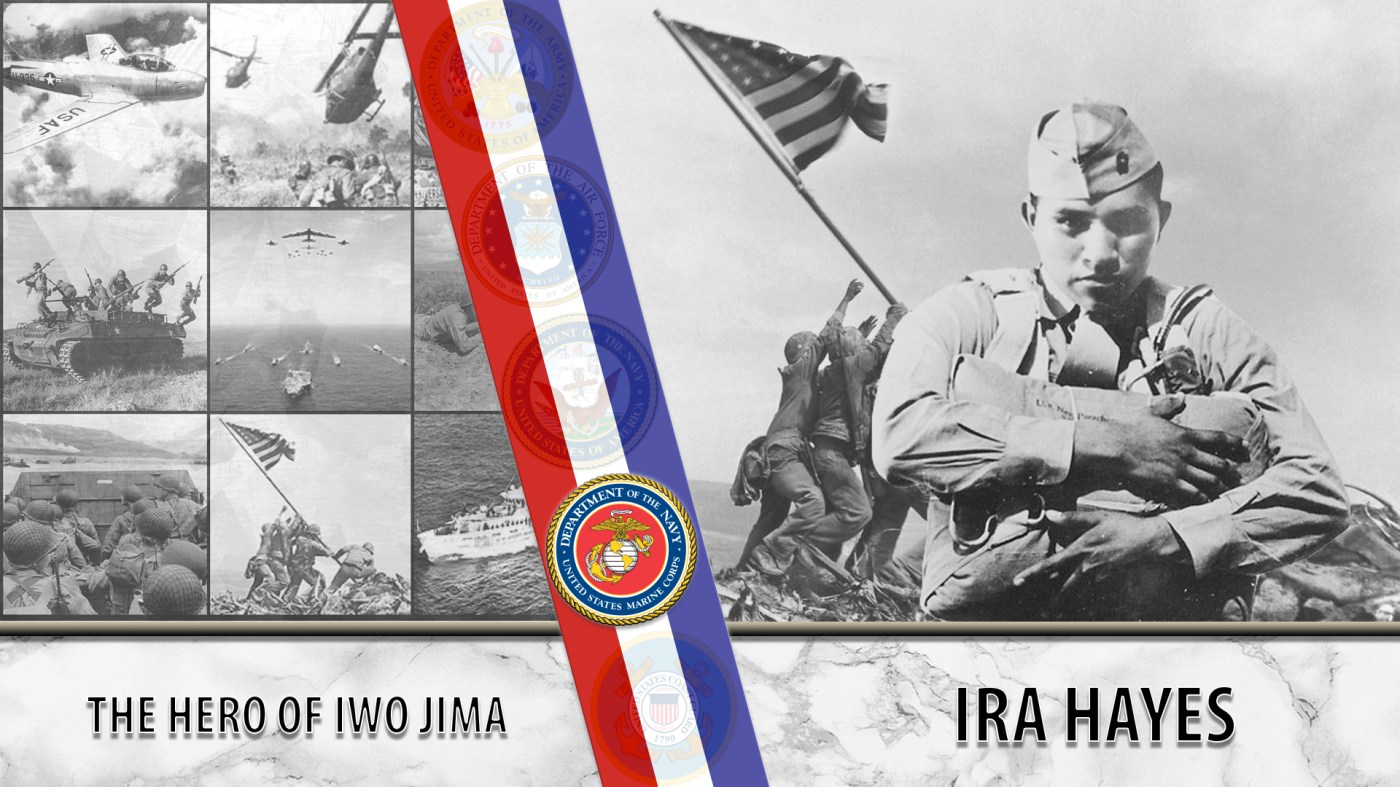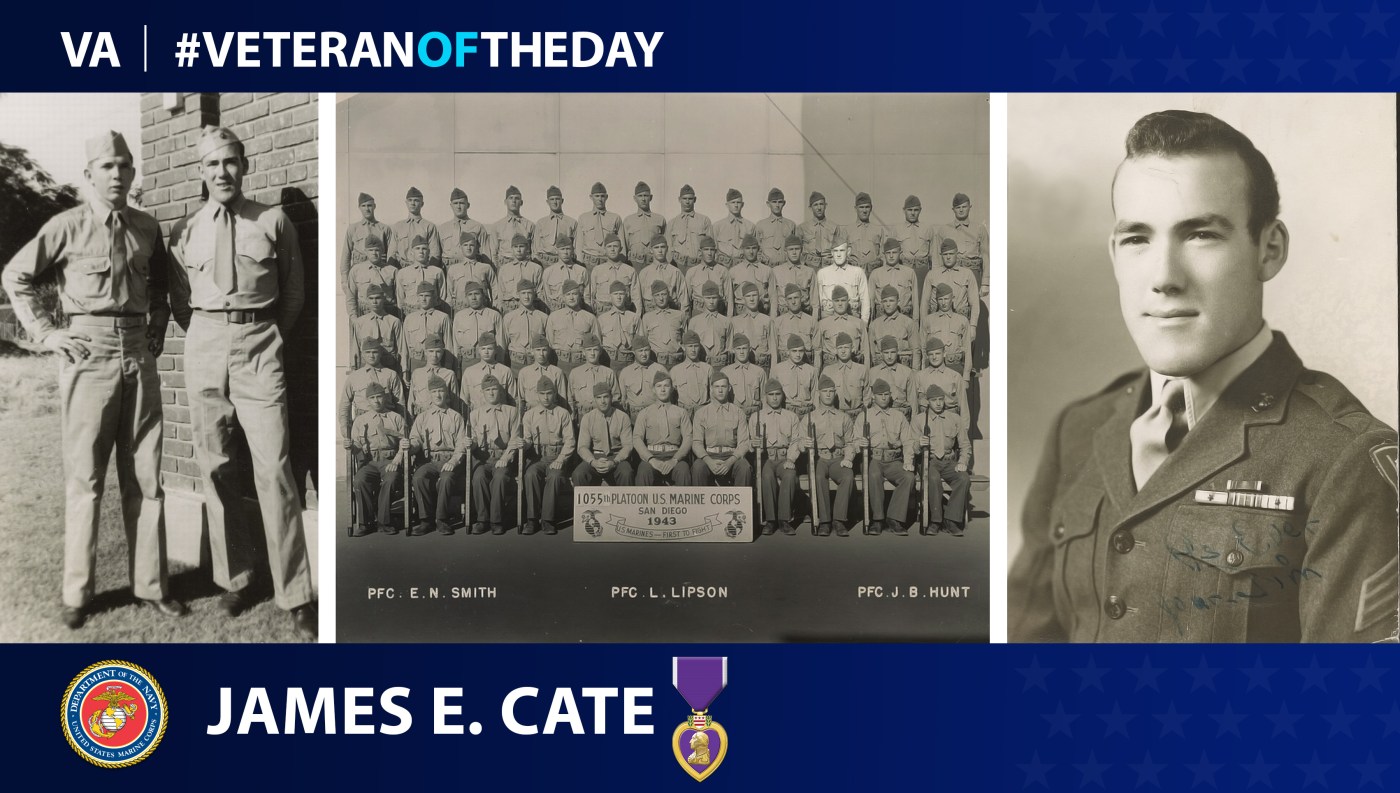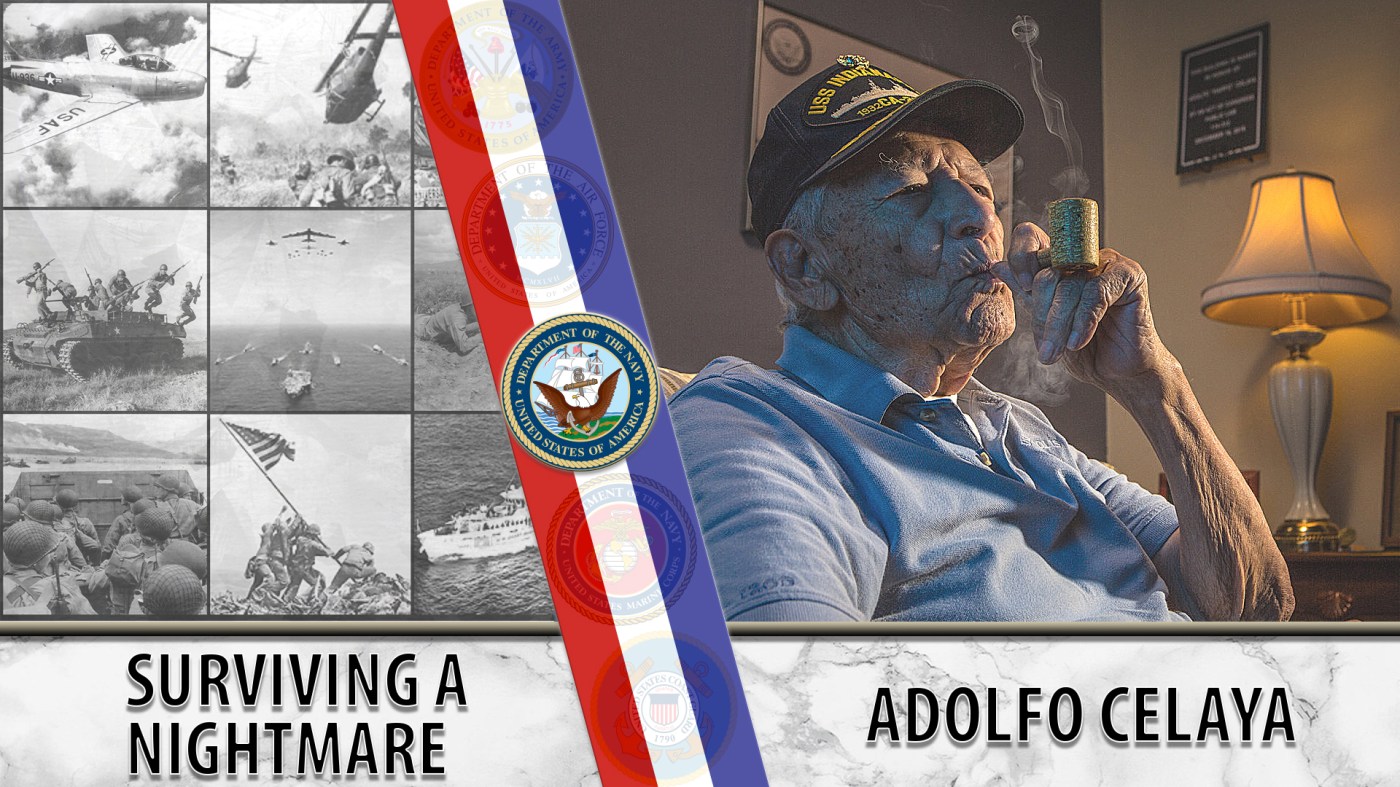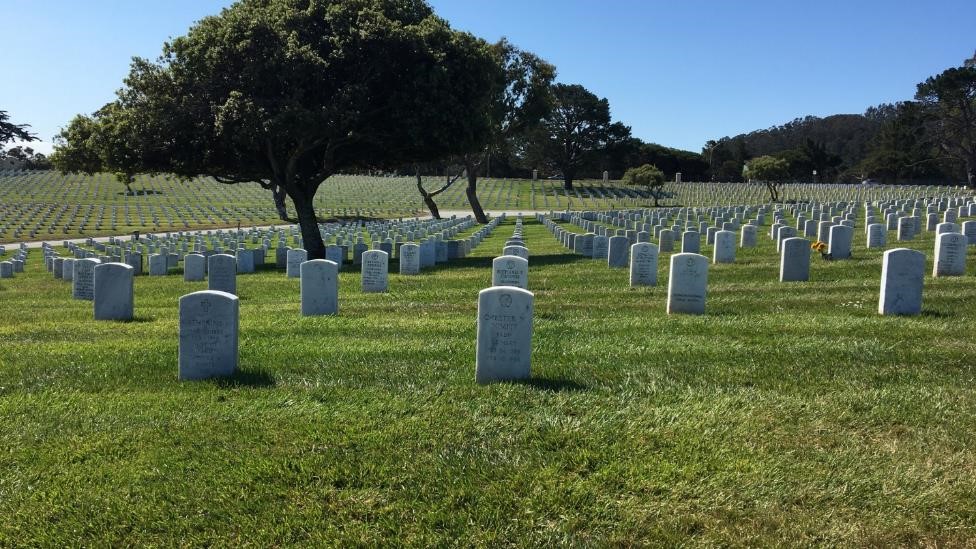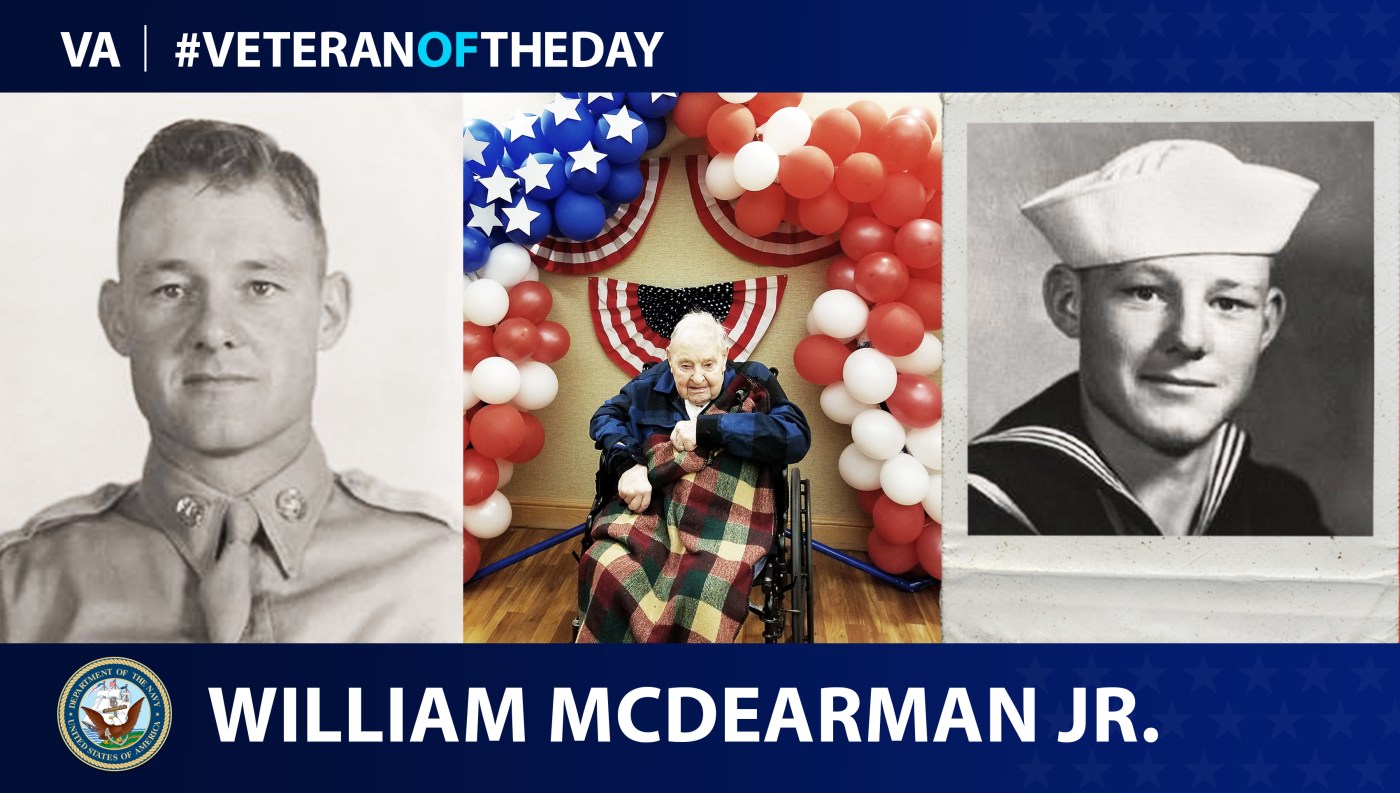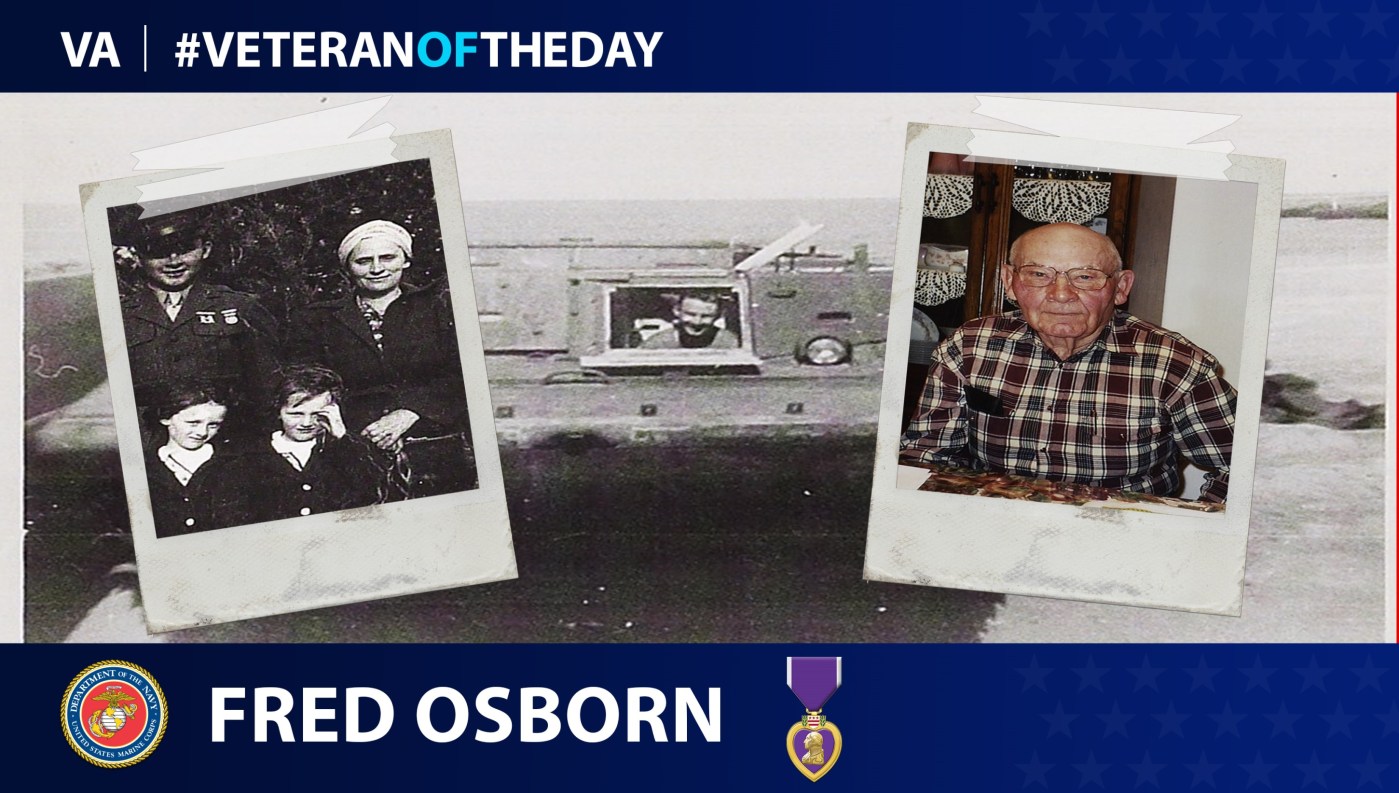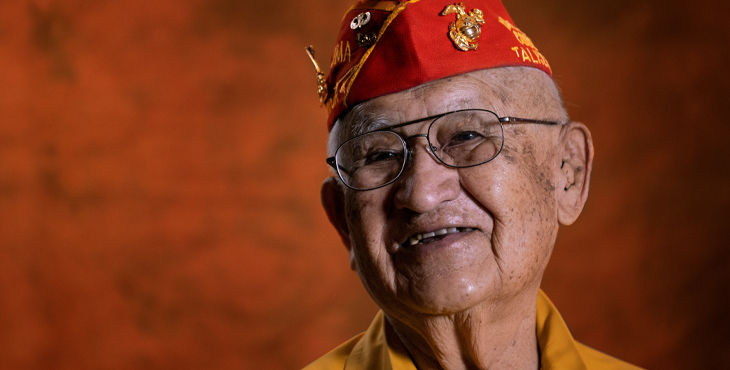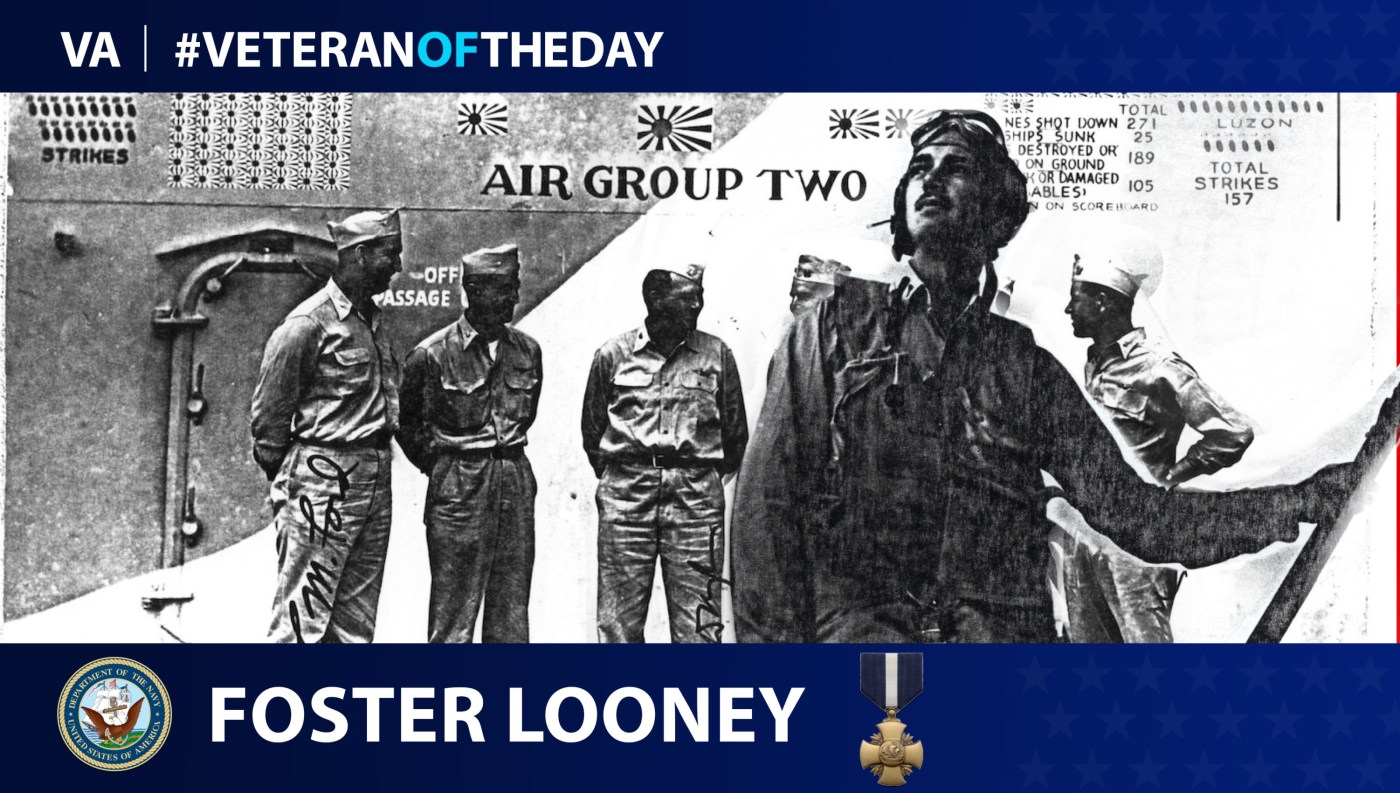Today’s #VeteranOfTheDay is Navy Veteran Robert G. Mackey, who helped organize the ceremony for the Japanese surrender during World War II.
On the anniversary of the flag raising on Iwo Jima, today’s #VeteranOfTheDay is Marine Corps Veteran Donald E. Longfellow, who fought in the battle.
The Code Talkers used native languages to send military messages before World War II. Navajo, which was unwritten and known by few outside the tribe, seemed to fit the Corps’ requirements. They took their language and developed a “Type One Code” that assigned a Navajo word to each English letter. In addition to being unbreakable, the new code also reduced the amount of time it took to transmit and receive secret messages.
Ira Hayes was a Pima Indian Marine and one of the last surviving members of the Iwo Jima flag raising in World War II.
Today’s #VeteranOfTheDay is Marine Veteran James Cate, who was injured during combat in Iwo Jima, earning him a Purple Heart.
Navy WWII Veteran Adolfo Celaya was one of the few survivors of the USS Indianapolis.
Admiral Chester W. Nimitz decided that, in death, he wanted to join his men at Golden Gate with a standard military funeral and regulation headstone. He took steps to assure that the shipmates closest to him during World War II could join him.
On his 100th birthday, today’s #VeteranOfTheDay is Navy and Air Force Veteran William McDearman, who served on the USS Medusa and Indiana during World War II and taught missile instruction in the Air Force.
Today’s #VeteranOfTheDay is Marine Corps Veteran Fred Osborn, who served during the battles of Tarawa, Mare and Iwo Jima during World War II.
On National Navajo Code Talker Day, we celebrate the tenacity and remember the courage of the code talkers during World War II.
Today’s #VeteranOfTheDay is Navy Veteran Foster E. Looney, who earned a Navy Cross for striking a carrier during World War II.

